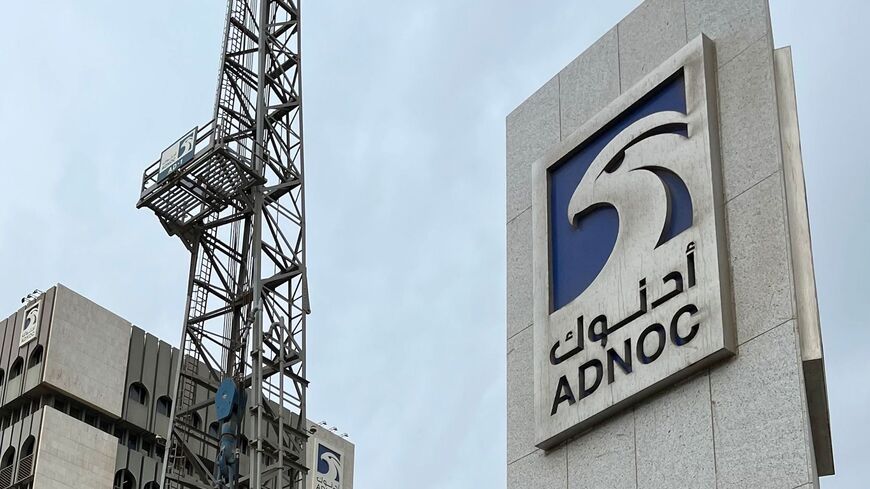Israeli tech at risk of not joining global industry recovery
Al-Monitor Pro Members
David Rosenberg
Israeli reporter specializing in business, economics and politics
July 19, 2023
Israel’s startup-oriented high-tech industry is at risk of failing to rebound from the global slump. Startup companies in the United States and Europe raised more capital in the second quarter of the year than in the first while technology shares on Wall Street have rallied. In Israel, startup fundraising showed a modest improvement, but the youngest startups continue to suffer. Israeli tech shares are sharply underperforming their US peers. In addition, there are growing signs of structural problems that may also be impeding a recovery. High-tech is the main growth engine of the Israeli economy — a major source of employment, exports, foreign currency and tax revenues. The absence of an industry recovery would have far-reaching effects on the wider economy and may also undercut Israel’s ability to maintain its technology-based military edge.
- Israeli tech companies raised $1.93 billion in the second quarter of this year, up 11% from the first but down more than 60% from a year earlier, according to the industry tracker IVC Research. Like tech companies globally, Israeli startups have seen fundraising levels collapse from record levels set in 2021. Rising interest rates and a tech-led stock market slump have deterred investors as have concerns about a recession. In Israel, the bitter controversy over the government’s judicial reform plans has contributed as well.
- The first indications of a global rebound have emerged in recent months, but that has not been the case in Israel. Using its own estimates, the Start-Up National Policy Institute (SPNI) found that while fundraising in Europe and the United States was up 34% and 15%, respectively, from the first to the second quarters, in Israel it continued to decline. While the Nasdaq 100 Tech index rose 41% in the first quarter, the Tel Aviv Stock Exchange Tech Elite index posted a gain of just 9%.
- Although economists and industry leaders acknowledge that it is difficult to distinguish the relative weight of global versus domestic factors in Israel’s continued slump, most point to the government’s renewed drive to implement judicial reforms that would weaken the courts and subject the justice system to greater political control as a negative factor unique to Israel. Tech industry executives have been among the most forceful opponents of the reform plan, saying it would harm the business environment. There are also concerns about the general policy direction of the current government, which is dominated by far-right, religious parties.
- Prime Minister Benjamin Netanyahu suspended the judicial reform drive in March, signaling that it would either be abandoned or substantially diluted. However, on June 18, Netanyahu announced that the government would introduce a key reform bill to the Knesset. The result has revived the protest movement and has caused the shekel to weaken. Many observers say that despite hints of readiness to compromise, the Netanyahu government is now determined to move ahead with the reforms.
- Behind the topline figure for startup fundraising, other data points to deeper problems for the tech industry. The Israel Innovation Authority (IIA) reported in April that in 2023 between 50 and 80% of new startups this year had been registered abroad, up from 20% in 2022, even though Israeli tax rates are lower than those in the United States, for example. “The phenomenon signifies a decline in the trust in the Israeli business environment,” the IIA said. It also means that management and intellectual property is likely to be kept abroad as well.
- The Israeli tech industry revolves around the continuous formation of new companies, but the number of new startups formed annually has been in long-term decline. IVC Research estimated that 640 companies formed in 2022, less than half the 2014 peak 1,393. It estimates the number will fall to 500-550 in 2023. In the first half of 2023, early-financing rounds of capital for the youngest startups reached their lowest total in three years.
- An IIA position paper published in May found that in previous global technology slumps, the Israeli industry began to raise more capital and resume hiring about two quarters after tech stocks rebounded on Wall Street. If so, those trends should get underway during the third quarter. However, the IIA expressed concern that data for April and May and other indicators showed that the Israeli industry had become “detached” from global trends.
- Although the Israeli economy has continued to show strong growth this year, this is less likely to persist if the tech industry does not recover. The IIA estimates that the sector, including startups and mature companies, accounted for about 30% of Israeli GDP growth in 2018-22. Last year, technology comprised close to half of total exports and employed about 11% of the labor force (and an even larger share of total wages, given that salaries on average are about double the national average).
- A long-term decline in the tech industry would have serious implications for Israel. It is not only a driver of economic growth, it is one of the few industries where Israel is internationally competitive and a key source of employment for its most talented and best-educated workers. Israel’s technology prowess has also acted as an important source of soft power, helping to make it a desirable partner for countries seeking tech solutions for problems such as water scarcity, seeking to build their own technology sectors and, perhaps most of all, giving them access to Israeli military technology.
Scenario 1: Israeli tech sector joins the global recovery this summer
Although the Israeli sector has so far lagged behind its global peers, the industry will follow its traditional trajectory and will begin to turn around over the course of the summer. IVC points to a few indicators that fundraising stabilized in the second quarter, such as the fact that foreign venture capital funds boosted investment in the second quarter after six quarterly declines. In addition, Israel will be able to leverage its capabilities in artificial intelligence (1,400 startups that are actively utilizing AI technologies and 47 firms specializing in generative AI, according to SPNI) amid surging global interest in the technology. While a return to 2021 levels is not in the footing, the industry may this year approach the $10 billion pre-bubble level it achieved in 2019. The industry, in fact, may emerge stronger from the downturn by easing the labor shortages it has suffered in the past.
Scenario 2: Political and structural problems cause industry to contract
The Israeli industry fails to join the global high-tech recovery. Continued controversy over judicial reform and the character of Israeli democracy deters foreign investment (which accounts for the majority of capital invested in Israeli startups) and Israeli entrepreneurs (who opt to form or move their companies overseas). The unfavorable political environment causes the tech industry’s underlying structural problems to fester. While Israel’s core capabilities in human capital and tech infrastructure preclude an industry collapse, startup formation continues to contract and the size of the overall industry shrinks over time as the pipeline of new companies narrows. A retreat by foreign investors deprives the Israeli tech industry of substantial investment capital, causing annual fundraising to shrink to levels of a decade ago.
The Israeli tech industry recovers, but the turnaround occurs late in 2023 or early 2024. The continued controversy over judicial reform weighs on the industry, but the government ultimately decides not to pursue the reform unilaterally due to the risk to the economy and societal rifts it is creating. The issue is resolved satisfactorily through a compromise between the government and the opposition or because the government abandons its plans. At that point, Israel’s fundamentals – among others, its talented and motivated workforce, and a cadre of experienced entrepreneurs — should again come to the fore. Investors and entrepreneurs are initially hesitant to risk investing in the youngest startups and continue to focus on follow-on funding for mature companies. Although a narrower pipeline of new startups and a prolonged downturn cause some harm to the industry (for example, missed opportunities in AI), it is dynamic enough to overcome them over time. Tech fundraising will not reach 2021 levels for some time, but it should see steady gains over the next five years.
David Rosenberg has more than 30 years experience reporting, commenting and speaking on business, economics and politics in Israel and the Middle East. He has worked for Reuters, The Jerusalem Post and Dow Jones, and was bureau chief for Israel for Bloomberg News. He is the author of two books (Cloning Silicon Valley, 2001, and Israel’s Technology Economy, 2018) and has been published in The Wall Street Journal and Foreign Policy. He now writes commentary for the Haaretz daily.
We're glad you're interested in this memo.
Memos are one of several features available only to PRO Expert members. Become a member to read the full memos and get access to all exclusive PRO content.

Already a Member? Sign in
The Middle East's Best Newsletters
Join over 50,000 readers who access our journalists dedicated newsletters, covering the top political, security, business and tech issues across the region each week.
Delivered straight to your inbox.
Free
What's included:
Free newsletters available:
- The Takeaway & Week in Review
- Middle East Minute (AM)
- Daily Briefing (PM)
- Business & Tech Briefing
- Security Briefing
- Gulf Briefing
- Israel Briefing
- Palestine Briefing
- Turkey Briefing
- Iraq Briefing
Premium Membership
Join the Middle East's most notable experts for premium memos, trend reports, live video Q&A, and intimate in-person events, each detailing exclusive insights on business and geopolitical trends shaping the region.
$25.00 / month
billed annually
$31.00 / month
billed monthly
What's included:
Memos - premium analytical writing: actionable insights on markets and geopolitics.
Live Video Q&A - Hear from our top journalists and regional experts.
Special Events - Intimate in-person events with business & political VIPs.
Trend Reports - Deep dive analysis on market updates.
We also offer team plans. Please send an email to pro.support@al-monitor.com and we'll onboard your team.
Already a Member? Sign in







